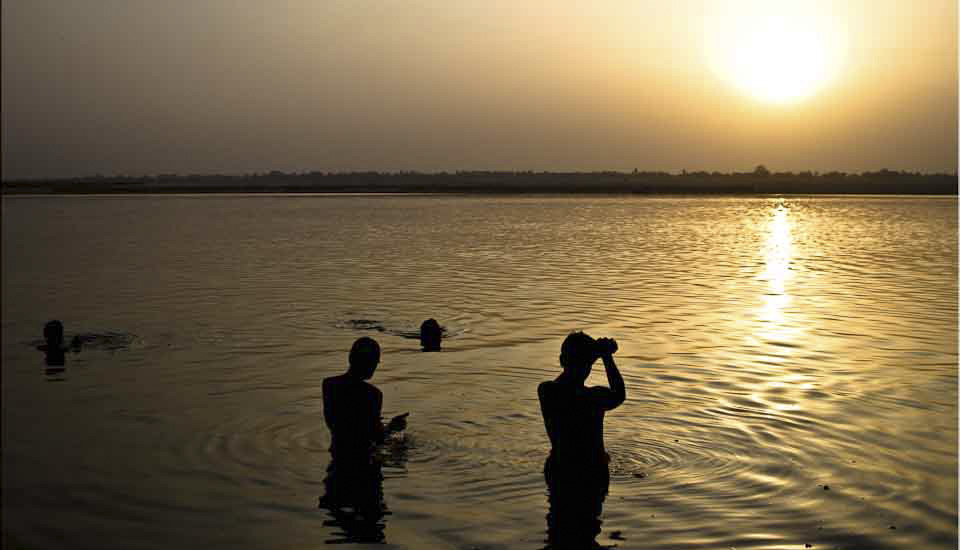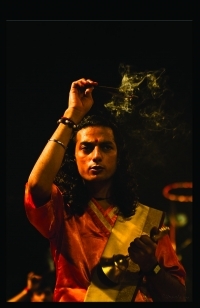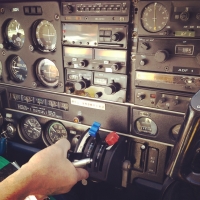.jpg)
Sun Setting over Ho Chi Minh City
The classic Level 23 Wine Bar at Sheraton Saigon Hotel & Towers is a great place to round out a day’s exploration of Vietnam’s old southern capitol, and to watch the sun set over the expanding contemporary city.
Oh, Saigon!
It was a name familiar to those of us who grew up in the West: first as an exotic part of France’s colonial empire, until – as Saïgon – it achieved a hard-won independence in 1955, and then as a component of the evening news for its pivotal role in the Vietnam War; the city now known as Ho Chi Minh (HCM) has been at a crossroads of history and culture for centuries. It started life as a small Khmer fishing village long before the expansion of colonisation by Vietnamese settlers in the 17th century.
The city today reflects this very mixed heritage: it is the most populous metropolitan area in Vietnam, and the county’s fast-growing economic centre. But, it still looks to the past, with magnificent French architecture rubbing shoulders with Asian street food and traditional temples, and reminders of the terrible legacy of the Vietnam War share space with tributes to “Reunification” under the current regime.
The last time I was in HCM, I was only overnighting en route to the Mekong Delta, and I had virtually no memory of the city itself. So, it was with interest that I mapped out a day’s walking-tour for my husband and myself.
I was pleased to find that there was still a roof-top bar at the Sheraton Saigon, as mentioned in my very ancient Lonely Planet guide; watching the sun go down in style over a mojito was a nice reward after a lot of walking!
Join me for some of the sights of old Sài Gòn.
.jpg)
Notre-Dame Cathedral Basilica of Saigon
Our shuttle drop-off and pick-up point was outside the amazing Nhà Thờ Đức Bà, officially called the Cathedral Basilica of Our Lady of The Immaculate Conception. Built between 1863 and 1880 to service a growing Roman Catholic community in Saigon, all the materials used in its construction were imported from France. The two 58 metre (190 ft) bell towers were added in 1895.
.jpg)
Wedding Couple
The bright red bricks of the cathedral’s exterior were imported from Toulouse. Today they are ‘graffitied’ with sponsors’ names, and provide a colourful backdrop for happy wedding photos.

Font Area inside Notre Dame Cathedral
The stained glass in the cathedral is from Chartres province in France.

Merci à Notre Dame
Countless tiles inside the cathedral give thanks to Our Lady (Tạ Ơn Đức Mẹ ; Merci à Notre Dame). Although the original tiles were all from France, many new ones have been locally made to replace those that were damaged during the war.

The Nave
Built in neo-Romanesque style, the interior of the cathedral is quite elegant.

Reunification Palace
Our next stop was at the Independence Palace (Dinh Độc Lập) or Reunification Palace.

Inside the Reunification Palace
Built between 1962 and 1966 on the site of the former Norodom Palace, this Vietnamese-designed building was the home and workplace of the President of South Vietnam and Chairman of the National Leadership Committee, General Nguyễn Văn Thiệu, during the Vietnam War.

Guide in the Reunification Palace
Tours through the palace recount the long and troubled history of the war years.

Vietnamese Visitors to the Reunification Palace
Fortified rooms under the palace are where the South Vietnamese managed their war effort …

Communication Centre in the Reunification Palace
… until a North Vietnamese tank bulldozed through the main gate on 30 April 1975, bringing the Vietnam War to an end.

War Remnants Museum
Located in what was the US Information Service building, this is a challenging, but important museum.

Tank – War Remnants Museum
Originally called the Exhibition House for Crimes of War and Aggression, presentations inside the building illustrate the brutal effects of war, especially on civilians. Horrifying experimental weapons are on display, as are sobering photos documenting the effects of US bombing and napalming. One section, the Requiem Exhibition, compiled by legendary war photographer Tim Page, is devoted to the works of photographers from both sides, who were killed during the conflict.

Ho Chi Minh Streets
We needed some time out after the harrowing War Remnants Museum, so set off on a brisk 2 kilometre walk across the old city …

Jade Emperor Pagoda
… to the Chùa Ngọc Hoàng, the little temple built in 1909 by the local Chinese community in honour of the supreme Taoist god: the Jade Emperor or King of Heaven, Ngoc Hoang.

Lighting Incense
Inside the Jade Emperor Pagoda, it is hot, dark, and heavy with the smell of incense and oil.

Prayers and Incense
The majority of people in Ho Chi Minh City practice Mahayana Buddhism, often mixed with Taoism and Confucianism (via ancestor worship). It is not uncommon to see symbols of Buddhism in a Taoist temple like this one.

Pouring Oil
Religious practice is an integral part of daily life.

Lucky Turtles
Back outside, in the courtyard of the Jade Emperor Pagoda, countless turtles – some with lucky symbols carved into their shells – clamber over each other.

Preparing “Street” Food
We got very lucky! Tired and hungry, we managed to remember the name of the restaurant we had seen opposite the Reunification Palace, and took a taxi back to Quan An Ngon 138.

Spring Rolls
It turns out that the Quan An Ngon Restaurant is known for presenting diverse regional Vietnamese cuisines in a village market style. We enjoyed our late lunch before setting off again, …

Ho Chi Minh City Supreme People’s Court
… past the courthouse …

Ho Chi Minh City Hall
… and the magnificent French Colonial City Hall …

Saigon Central Post Office
… to the Saigon Central Post Office, the most celebrated example of Renaissance architecture in Vietnam.

Saigon Central Post Office
The building, completed in 1891, was designed by the renowned French architect Gustave Eiffel. Stepping inside is like walking into the past.

Saigon Opera House
We paused briefly to admire the stylish French Colonial Municipal Theatre of Ho Chi Minh City, also known as Saigon Opera House …

Ho Chi Minh Skyline after Dark
… before ending our self-guided tour with drinks on the roof and city lights.
As I said at the outset, it was the perfect way to round out a long but fascinating day.

Until next time,
Happy Travels!
Photos: 29February2016






























.jpg)

